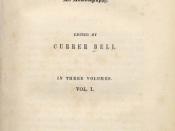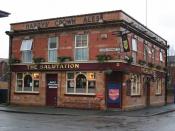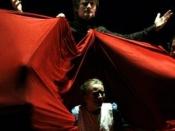Jane preaches a sort of individual feminism, valuing equality and individuality over societal constraints. As a Victorian woman, and an orphan- consequently making her low class, Jane Eyre had very few choices to secure her survival. She could have been a prostitute, she could have married for money, become a servant, or become a governess. Jane chose the option that allowed her to be an individual, to choose her own path. Aided by a mysterious fairy- she sends an ad into the local newspaper and finds a position teaching a young French girl named Adele. But who is this fairy that helps Jane, gives her the idea to become a governess, shields her from the fears of "a new servitude?" Jane, who has never had a mother, uses this odd sort of mystical feminine guidance in more than one instance in the novel. She seems to have a "female intuition" looking out for her, and helping her.
Jane has a special connection with some sort of mystical feminine, and is also helped by her own internal sense of self worth. Jane demands equality from Rochester, her employer and future lover by speaking to him as his equal. She does not allow herself to be criticized or belittled. She exudes confidence in herself her work and her esteem. This sort of attitude coming from a woman of this time was rare. Bronte, through Jane, expressed that women are men's emotional and intellectual equals. By doing this, she also delved into the idea that men could act in an emotional manner. "Women are supposed to be very calm generally" writes Bronte "but women feel just as men, they need exercise for their faculties and a field for their efforts as much as their brothers" (Bronte 104). Rochester finds Jane to be...


